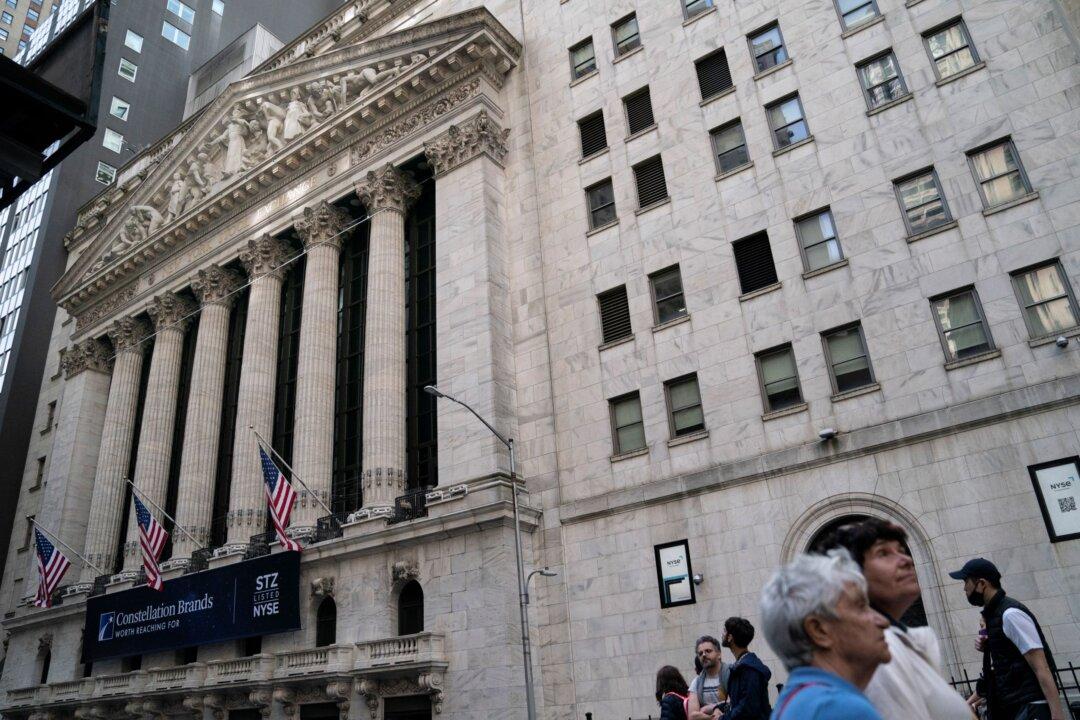NEW YORK—Stocks are tumbling and disappointment is shaking markets worldwide Tuesday, following Wall Street’s realization that inflation isn’t slowing as much as hoped.
The S&P 500 sank 2.3 percent in early trading Tuesday, threatening to snap a four-day winning streak. Bond prices also fell sharply, sending their yields higher, after a report showed inflation decelerated to 8.3 percent in August, instead of the 8.1 percent economists expected.





